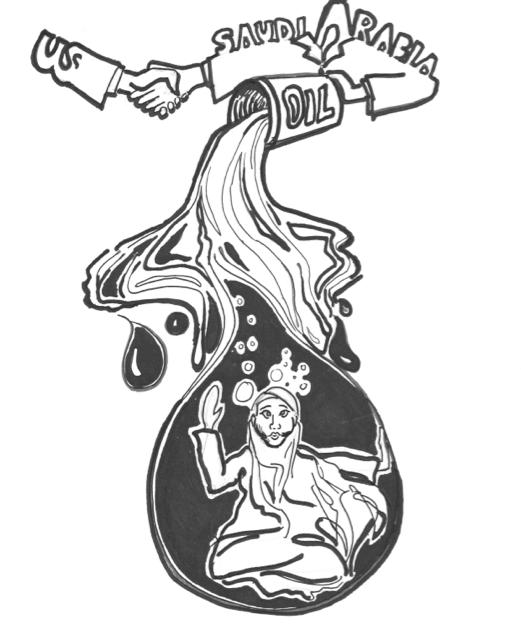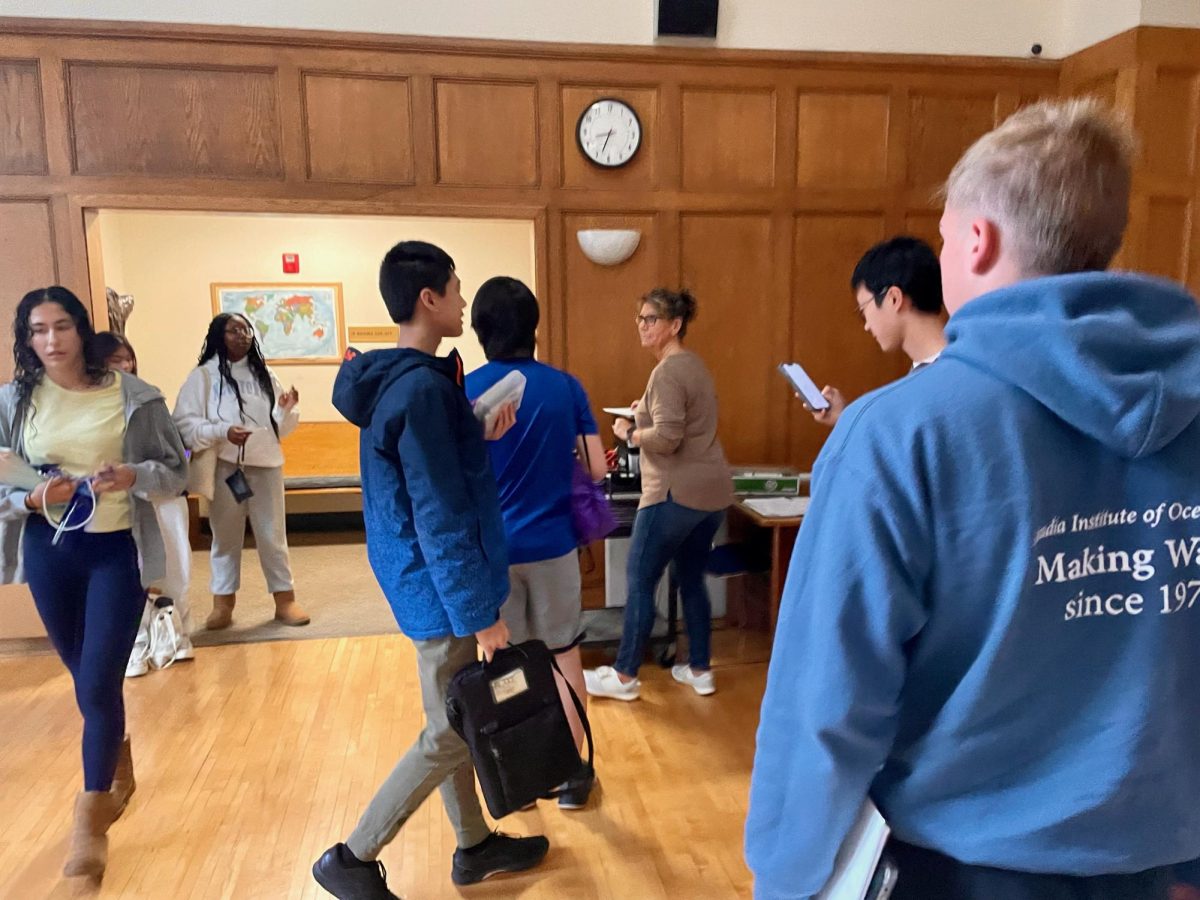Requiring women to have male escorts, prohibiting women from driving, censoring mail, ignoring sexual slavery, forbidding people from publicly worshiping non muslim religions, and holding unfair trials resulting in brutal Capital punishments including public beheadings are just a few human rights that Saudi Arabia’s Monarchy violates on a daily basis. Now the question is not whether Saudi Arabia meets standards for human rights for all of its citizens, but it is why a country such as the United States of America would ally itself so closely with a nation that continues to systematically oppress such a large portion of its population.
The most obvious answer is oil. According to U.S. Energy Information Administration in 2014 Saudi Arabia exported on average 1,191 barrels of crude oil per day to the U.S, second only to Canada. Kincaid O’Neil ‘17, when asked if oil was a motivating factor for US foreign policy in Saudi Arabia responded, “Yes, it absolutely has had to do with oil! While we currently get a little under a third of our imports from OPEC, and about a third of that from Saudi Arabia, our reliance has been dropping in recent years, particularly due to the fracking boom.” Kincaid is right, the US is expected to become nearly self sufficient for its energy needs by 2035 which would allow it to stop relying on countries like Saudi Arabia for oil, but the problem goes beyond that.
An anonymous source explained, “US foreign policy is such a complicated ball of economics, social policies, and any and all possible ramification through the US itself. I don’t think that any decision made by the US is based upon just one thing (whether that thing is good or bad). But because most of the Industrial world runs on oil, and the natural gasses from that area, it’s hard to take it off the table as a motivator for foreign policy.”
US foreign policy in Saudi Arabia is the result of a complicated web of factors all forcing the US to maintain an alliance. In order to begin to understand the US’s foreign policy in Saudi Arabia we need to seek out information on our alliance with them and start conversations about it so we can all act as better global citizens and engage in fruitful discussion about the pros and cons of the alliance.












